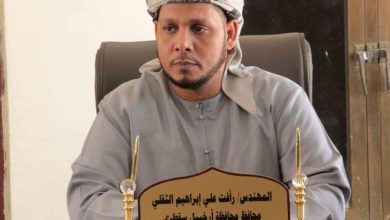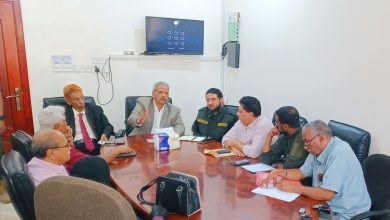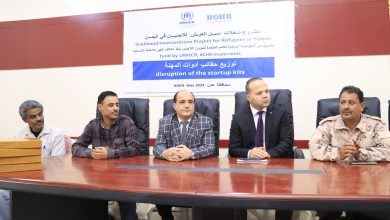In a significant move to address the ongoing humanitarian crisis in Yemen, Prime Minister Dr. Ahmed Awad bin Mubarak has directed the development of a comprehensive national plan. This plan aims to integrate government efforts with international organizations and humanitarian agencies to effectively manage the needs of internally displaced persons (IDPs) and returnees. The initiative seeks to ensure that humanitarian needs are met and to resolve any obstacles preventing aid from reaching those affected.
International Support Needed
During a meeting held in the temporary capital of Aden on Wednesday, Prime Minister bin Mubarak urged the international community and relevant humanitarian organizations to play a more active role in supporting the government’s efforts. He emphasized the necessity of international assistance that matches the scale of the crisis. The Prime Minister highlighted the decline in international and UN support for relief efforts, which has compounded the challenges faced by the government in caring for nearly three million IDPs fleeing from the violence of Houthi militias.
Acknowledgment of Efforts
Dr. bin Mubarak praised the Executive Unit for Managing IDP Camps for its on-ground presence and efforts. He stressed the importance of enhancing coordination with various ministries and government agencies to improve services for IDPs. The Prime Minister provided several observations from his recent visit to IDP camps in Marib, urging the incorporation of these insights into future plans. He called for mechanisms to foster partnerships with international organizations and agencies involved in this humanitarian issue.
Report on IDP Management
Najeeb Al-Saadi, head of the Executive Unit for Managing IDP Camps, presented a report on the unit’s performance since its reactivation in Aden. He outlined the national policy for addressing displacement in Yemen, noting that the unit operates in 105 districts across 13 governorates. The report indicated the existence of 657 camps and 1,112 displacement areas, housing approximately 2.9 million IDPs. Al-Saadi also discussed the unit’s strategy to shift towards sustainable solutions for displacement, in alignment with UN approaches.
Future Plans for IDP Management
The Executive Unit for Managing IDP Camps outlined its future strategy, focusing on three main areas: completing the institutional framework of the unit, enhancing transparency and quality to achieve good governance, and fulfilling its responsibilities towards IDPs and returnees. The plan also includes preparing for long-term solutions to the displacement crisis.
This meeting, attended by Prime Minister’s advisor Ambassador Mujib Othman, marks a crucial step in mobilizing resources and support for Yemen’s displaced population. The government’s commitment to addressing the needs of IDPs highlights the urgency of international cooperation in alleviating the humanitarian crisis in the region.
To follow the news in Arabic

 Al-Thuqali discusses efforts to document the Socotri language and directs preparations for the heavy vehicles site at the port.
Al-Thuqali discusses efforts to document the Socotri language and directs preparations for the heavy vehicles site at the port. General Al-Zubaidi calls for local, regional, and international cooperation to secure international shipping routes.
General Al-Zubaidi calls for local, regional, and international cooperation to secure international shipping routes. Council member Al-Zubaidi discusses with the Greek ambassador the impact of ongoing Houthi escalation on international shipping.
Council member Al-Zubaidi discusses with the Greek ambassador the impact of ongoing Houthi escalation on international shipping. A meeting was held in Lahij between the executive and judicial authorities to discuss strengthening coordination mechanisms.
A meeting was held in Lahij between the executive and judicial authorities to discuss strengthening coordination mechanisms. One hundred young men and women benefit from economic empowerment tools in Dar Saad district, Aden.
One hundred young men and women benefit from economic empowerment tools in Dar Saad district, Aden. Council member Al-Zubaidi appreciates China’s support for Yemen.
Council member Al-Zubaidi appreciates China’s support for Yemen.